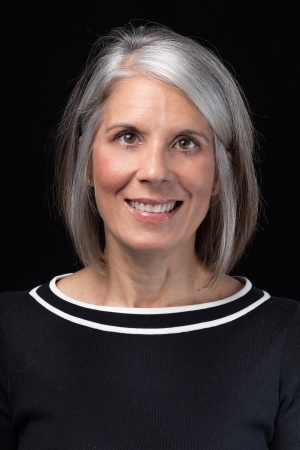Dr. Lisa Poling, an associate professor and assistant chair in the Department of Curriculum and Instruction at Appalachian State University’s Reich College of Education (RCOE), along with Dr. Travis Weiland, an assistant professor at the University of Houston, have been named the recipients of the C. Oswald George Prize for their article “Using an Interactive Platform to Recognize the Intersection of Social and Spatial Inequalities”, published in the journal Teaching Statistics.
This annual international award is given to the best article in the journal Teaching Statistics.
“In developing a research agenda related to spatial inequality, Dr. Travis Weiland and I have worked diligently to consider how data and statistics, within context, can show the impact of disparity at a fundamental level,” said Poling. “To be recognized for our research related to instructional strategies for teaching statistics for spatial and social justice is an honor.”
“Spatial justice is an emergent field in the area of social justice,” noted Poling. “Through our research and the implementation of the developed task, the use of statistics related to physical space provided a lens to examine students’ access to opportunity based on location.”
“We, as researchers, believe that spatial justice is a critical conversation that needs to be considered in communities of practice, especially as educators work to prepare students for the profession of teaching,” she continued.
“Receiving the C. Oswald George Prize for 2020 for our work recognizes the importance of using data, statistics, and context to better understand access to opportunity and its larger impact.”
“Receiving the C. Oswald George Prize for 2020 for our work recognizes the importance of using data, statistics, and context to better understand access to opportunity and its larger impact,” said Poling.
Editor, Helen MacGillivray said, “Poling and Weliand’s article brings together a number of aspects of increasing importance and value in teaching statistics and data science, combined with the long‐established good teaching practices of embedding learning in a real context both relevant and issue‐raising for your students, and which facilitates authentic experience of the statistical investigation process as long advocated by professional statisticians and statistical educators.”
“For all readers, this is a timely, interesting and informative paper in view of what is happening in the world today, where the spatial component of statistical data, especially of social variables, has become much more visible in media,” she continued.
Poling earned a Ph.D. in mathematics education from The Ohio State University, an M.Ed. in teacher leadership from Wright State University, teaching credentials from Capital University, and a B.S. in finance from Franklin University.
Prior to attending graduate school, Poling served as a public school teacher in central Ohio. She joined the RCOE faculty in 2010.
She currently teaches junior and senior level undergraduate courses in mathematics pedagogy and content and is a member of the graduate faculty. Her research interests focus on:
- Using statistics to examine issues of spatial and social justice;
- Exploring teaching practices that promote mathematics learning for all students;
- Teachers’ development of mathematics pedagogy for social justice and pedagogy; and
- Integrating a focus on mathematics and mathematical thinking.
During the 2018-2019 academic year, Poling was selected to participate in the Chancellor's Academic Leadership Development Program (ALDP). Through the ALDP, selected faculty and staff participate in formal professional development sessions that introduce them to various aspects of leadership throughout the university.
About the Award
Dr. C. Oswald George was an eminent government statistician in the United Kingdom; one of the founders of the UK's Institute of Statistics who served as Chairman and President. He donated a sum of money for the “best paper, especially submitted by younger authors, in the field of applied statistics.” The prize was subsequently attached to the Institute's own professional exams. After the formation of Teaching Statistics in 1979, the Institute made the prize money available for the best article in Teaching Statistics, and this prize has continued to be made available following the merger of the Institute with the Royal Statistical Society.

